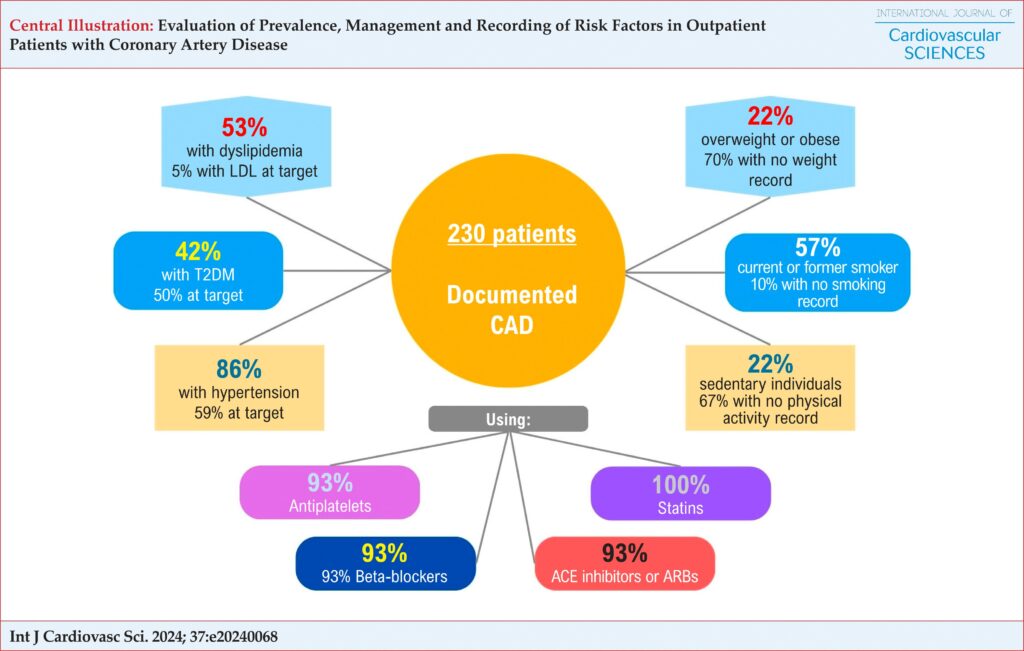International Journal of Cardiovascular Sciences. 18/Oct/2024;37:e20240068.
Evaluation of Prevalence, Management and Recording of Risk Factors in Outpatient Patients with Coronary Artery Disease
Abstract
Background
Coronary artery disease (CAD) is the leading cause of mortality worldwide. Adequate management of risk factors is directly correlated with better outcomes.
Objectives
This study aims to identify risk factors and evaluate the indicated medical treatment (both pharmacological and non-pharmacological) in patients with CAD.
Methods
Epidemiological data were collected from electronic medical records of patients treated at Cardiology outpatient clinics of a Tertiary Hospital and a descriptive analysis of the data was performed.
Results
Patients with documented CAD (n = 230) were selected for the study, with a predominance of white (60%) men (62%), most of whom were monitored following an Acute Coronary Syndrome (ACS) (63.9%). High prevalence and irregular control of risk factors such as smoking, hypertension, dyslipidemia, diabetes, obesity, and sedentary lifestyle were observed. Target blood pressure was achieved in 52.6% of patients, low-density lipoprotein (LDL) in 5.7%, and HbA1c in 50.8%, despite appropriate prescriptions for most patients – 100% were prescribed statins, and over 90% received antiplatelet agents, angiotensin-converting enzyme (ACE) inhibitors or angiotensin II receptor blockers, and beta-blockers. Few patients were encouraged to quit smoking and engage in physical activities.
Conclusion
Significant recording errors were noted in the medical records, along with inadequate control of CAD-related risk factors. Improvements in both recording and management of these risk factors are necessary to enhance CAD outcomes. The study utilized a straightforward and cost-effective model, which effectively mapped the local population profile and managed CAD risk factors.
523

